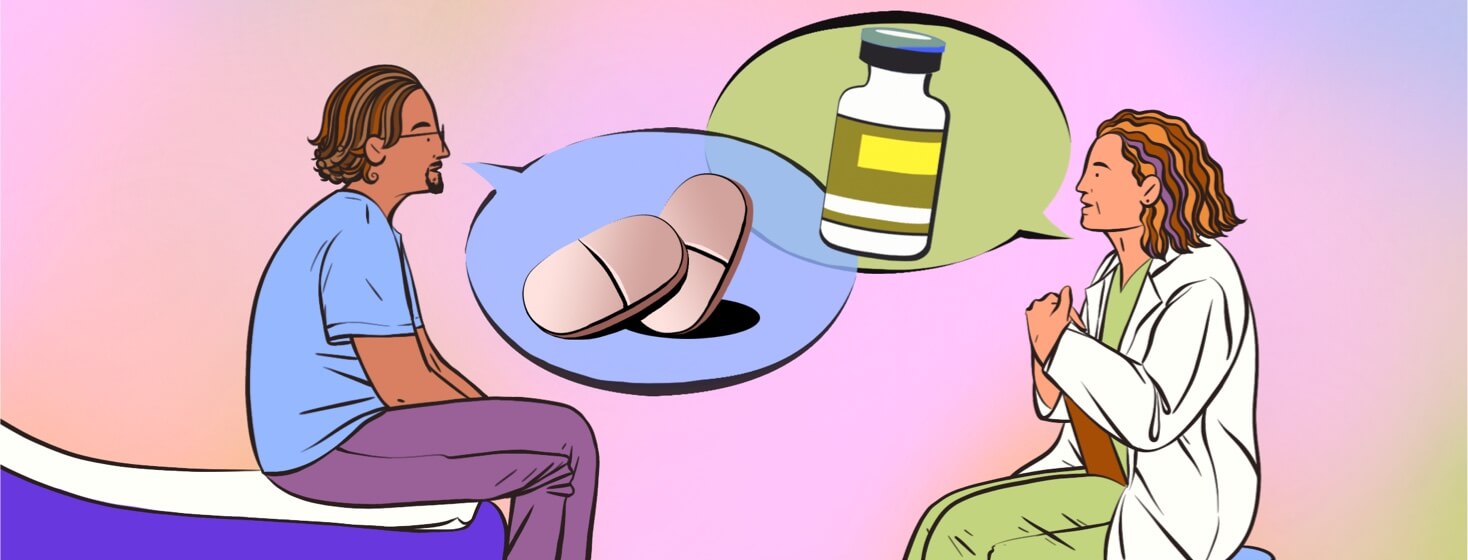How I Handled the Failures on My Path to HIV Treatment Success
As treatment options for HIV have changed, so have my personal views evolved. When I was first diagnosed, I resisted taking AZT, and now 30 years later, I am discussing injectable meds with my doctor.
I started my treatment journey at the onset of viral load testing and the emergence of protease inhibitors. From the beginning, I had a strategy for maximizing the results of my pills. It wasn't always a foolproof plan, but neither were the drugs.
From the beginning
When I first started learning about HIV medications, medical journals published studies involving combination therapy. At the time, there were only 4 drugs available. But researchers found, in conjunction with the newly developed viral load test, that one combination could decrease viral load better than any other.
My doctor agreed to prescribe the medicines, but he also warned me. Most patients who participated in the study reported crippling neuropathy as a side effect. We discussed adding a mood elevator used to treat depression that showed promise in controlling nerve damage.
I started the regimen and responded successfully. But the tingle in my fingers and toes began immediately. The pill to treat neuropathy helped, but I was emotionally disconnected and would fall asleep without warning. I had to stop taking it.
After several months I could barely walk from the pain. My doctor insisted that I change my medication. But by then, the damage was done. Now, 30 years later, I still cannot feel the tips of my toes, and on particularly bad days, my foot will cramp up without warning.
The magic bullet
My first protease inhibitor was an actual miracle. Crixivan brought my body relief from Kaposi's sarcoma. While the lesions faded across my body, many other issues rose in their place.
I began to experience kidney stones regularly. At least 3 times a year, this would happen, which resulted from calcium buildup in my organs. Once, it took over a month for a stone to pass.
At the same time, the enamel on my teeth began to chip, and my teeth would crack. While this is purely anecdotal, many people I know who were on Crixivan experienced the same issue. My body was being destroyed at the expense of keeping my viral load undetectable. Eventually, I had to move on to another treatment option.
Featured Forum
View all responsesFor the sake of convenience
A few years later, I coordinated 4 HIV medicines at various points in the day — some I had to take with food, some on an empty stomach. And one needed to remain refrigerated to remain effective. It was exhausting keeping track.
My doctor knew of my frustration, and we explored a once-a-day pill coming onto the market. The idea of convenience was attractive. But I had learned my lesson about side effects and carefully examined what consequences that might be waiting for me.
The most worrisome were waking hallucinations. My doctor recommended that if I was going to go this route, to make this a bedtime regimen. I tried it and immediately began wandering around the house, hallucinating in the middle of the night.
I endured these nightmares for several months. But when my viral load spiked, we abandoned the drug, eventually landing on the successful combination I’ve been on for nine years.
What I've learned from treatment failure
I like to believe that I have a plan for my life. I have one for my treatment options. Having access to the latest information is only half of the equation. It only works if you apply that knowledge.
Every time I visit my doctor, I reserve a small portion of time to talk about things I've read about and listen to options she's aware of.
Know there are consequences
Even the most up-to-date treatments have the potential for side effects. As a long-term survivor, I know some don't show up for years. I don't let myself get lost in "What might happen." But I do take the time to know what to look for.
It's also important to understand that certain organs already under stress may not allow for certain medications. As always, this is a conversation to have with your doctor if you are concerned.
Open dialogue is the key
While I consider myself well-versed, I'm still not the medical professional in the room. I work with my doctor in tandem, respecting her role in my health care. I also commit to communicating quickly about any concerns, even minor ones.
Stop worrying
You can only control what you can. And in the case of treatment and medications, you can only control your decision whether to try it or not. How your body or the virus reacts is outside your realm of influence. The best that you can do is to support your body with care.
I try to always remember it's a long arc that my treatment path is on, and I keep my eye on the future with the help of my doctor and the support I give to myself.

Join the conversation